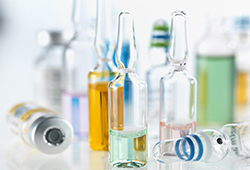 Below are some recent developments in the biosimilar industry from around the globe:
Below are some recent developments in the biosimilar industry from around the globe:
On January 14, 2020, Alvotech announced that it entered into a partnership with Canada-based JAMP Pharma for the supply and commercialization of five biosimilar candidates in the Canadian market. According to the announcement, Alvotech will be responsible for the development and supply of the biosimilar products, and JAMP will receive the exclusive rights to commercialize Alvotech’s biosimilars in Canada. The financials terms of the deal were not disclosed in either of the companies’ press releases.
On January 17, Coherus announced that it entered into a licensing agreement with China-based Innovent Biologics to commercialize Innovent’s biosimilar candidate to Avastin (bevacizumab) in the United States and Canada. According to the announcement, Coherus plans to complete a number of pharmacokinetic and analytical/bioanalytical studies to support the filing of a Biologics License Application with the U.S. FDA in late 2020 or early 2021. In addition, the licensing agreement provides Coherus with an option to commercialize Innovent’s biosimilar to Rituxan (rituximab) in the United States and Canada. According to the announcement, the agreement calls for Coherus to “pay up to $45 million in milestones, including the upfront, for its Avastin biosimilar upon achieving certain regulatory and commercialization goals, as well as customary double-digit royalty payments.”
According to multiple reports this week, Celltrion has announced that it plans to build a biosimilar production facility in Wuhan, China that is expected to be China’s largest biologics plant. A Celltrion spokesman stated that “Celltrion will eventually also set up its sales and manufacturing infrastructure in China and a portfolio of 16 products tailored for the Chinese market will be set up by 2030.” This week’s Celltrion news followed the company’s announcement last week at the J.P. Morgan Healthcare Conference that globally it “hopes to launch one biosimilar product every year, reaching a total number of 18 products by 2030.”

